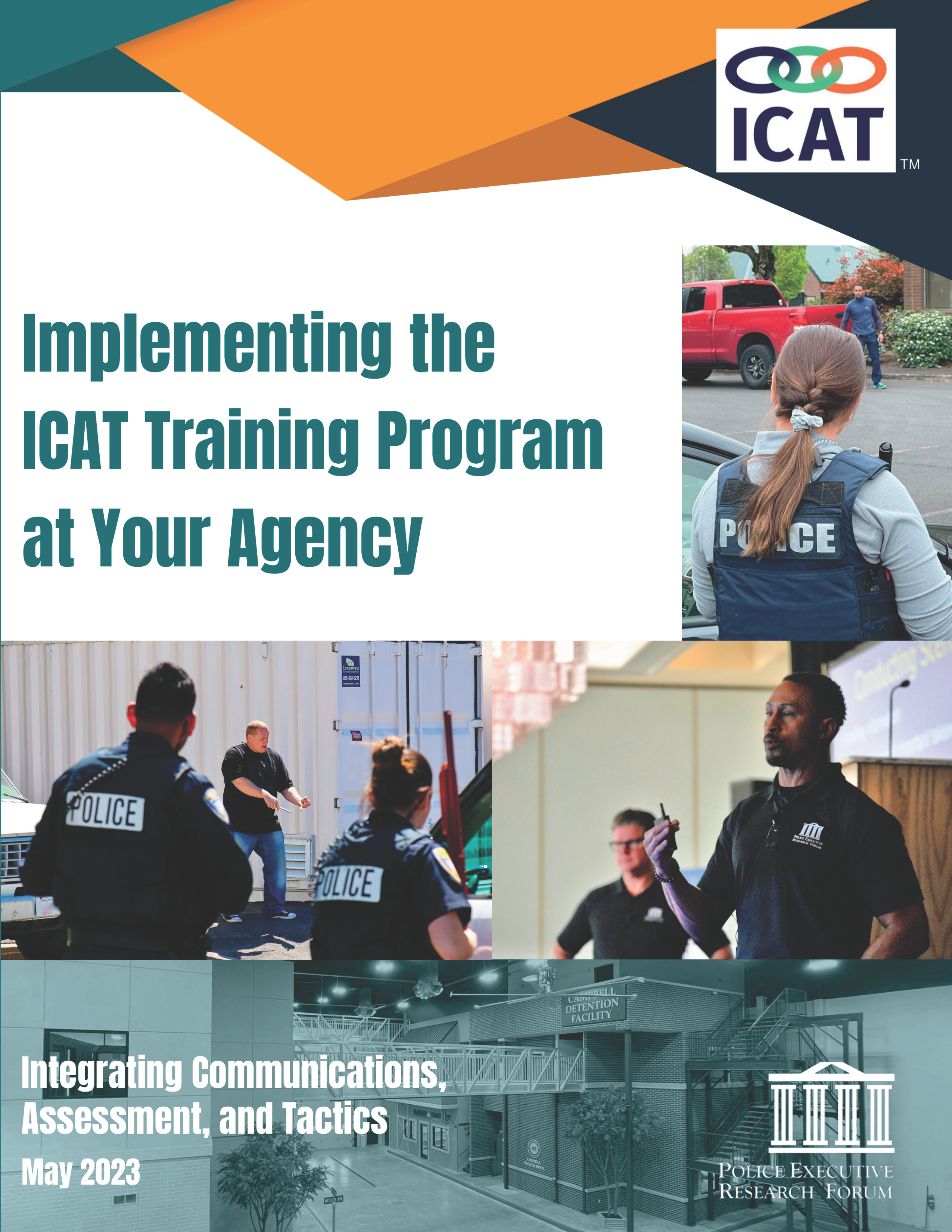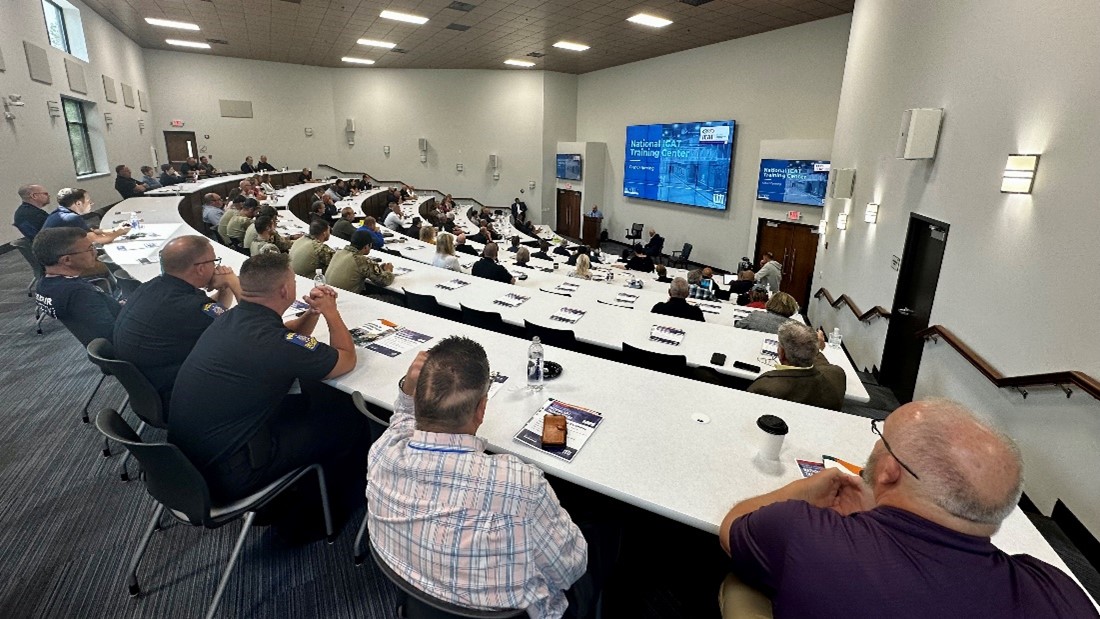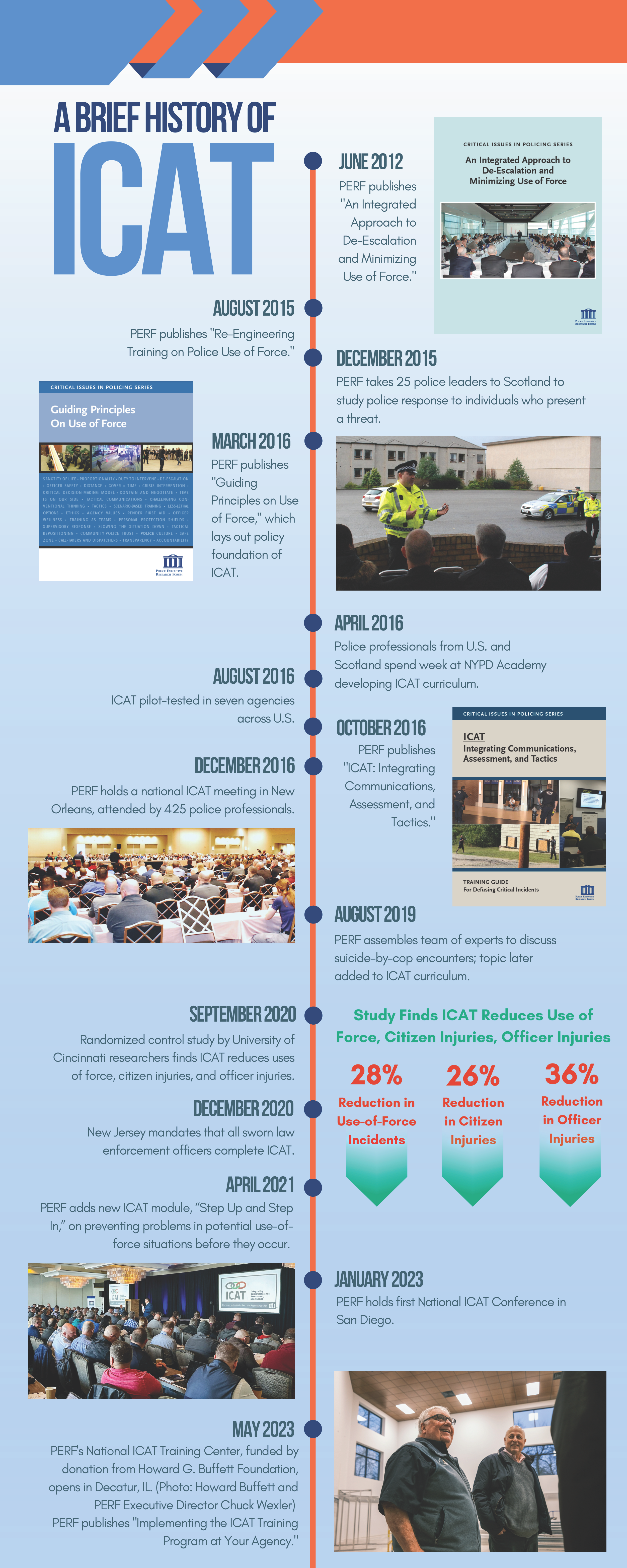|
January 13, 2024 We can change the narrative about policing, saving lives and careers
PERF members, You will soon receive a printed copy of our recent report, Implementing the ICAT Training Program at Your Agency, if you haven’t already. I’ve devoted several previous Trending columns to ICAT, so I know I might sound like a broken record on the issue. But here I want to explain why I feel so strongly about the program — and why it’s so important for the number of agencies that take advantage of ICAT to keep growing. Use of force is the defining issue for police. Many of the most controversial incidents concerning police involve an officer shooting an individual who doesn’t have a gun. Instead, the individual may have a knife or other weapon besides a firearm and may be acting erratically, possibly due to a mental health crisis. In 2015, when the Washington Post launched its “Fatal Force” database, it found that roughly 4 in 10 people shot and killed by police officers were either unarmed or armed with a weapon other than a firearm. No one questions police officers who take action quickly in response to an active shooter or another gun-related situation where their life is threatened. But in cases where the individual isn’t armed with a firearm — for example, when a mother calls the police because her teenage child is off their medication and has a weapon such as a knife or bat, or a mentally disturbed individual confronts the police in a suicide-by-cop situation — officers may end up using deadly force. These kinds of unfortunate cases are sometimes called “lawful but awful.” With the right training, we now know that many of these tragic cases can be prevented. That’s where ICAT—Integrating Communication, Assessment and Tactics — comes in. PERF designed ICAT specifically to give officers a better, safer way to resolve these types of incidents. In watching videos from these incidents we see that officers sometimes put themselves in situations where they have no choice but to use deadly force. ICAT emphasizes the effective use of time, distance and cover to give officers more options.
Officers participate in live scenario-based training at PERF’s National ICAT Training Center The backbone of ICAT is the Critical Decision-Making Model (CDM), a five-step process that officers can use to guide their decision making. Implemented properly, ICAT and the CDM can reduce use of force and even change the culture of a department. Officers can use the CDM when making use-of-force decisions on the street, when deciding whether or not to engage in a vehicular pursuit, or when making any other decision. With the CDM, every decision is made in a more thoughtful, deliberate manner. ICAT is the only de-escalation training program proven effective through a randomized control trial, the gold standard of research. After the Louisville Metro Police Department implemented ICAT, use-of-force incidents fell by 28 percent, citizen injuries fell by 26 percent, and officer injuries fell by 36 percent. What this means is that ICAT is one of the very few tools now available to agencies that can prevent a person from getting killed or keep a cop from getting indicted. Since the initial version of ICAT came out in 2016, we’ve worked continually to make it as useful and accessible as possible. (The timeline below shows major milestones in ICAT’s development.) We’ve updated the training, with new case studies and scenarios, to address new topics and challenges. We prepared the implementation guide you just received to pass along examples of how various agencies have implemented the program and the lessons they’ve learned. And last year we opened the National ICAT Training Center in Decatur, Illinois. This facility, built with the generous support of the Howard G. Buffett Foundation, now serves as a home base for PERF’s ICAT training. PERF is offering train-the-trainer sessions at the Decatur facility at no cost through 2024; if agencies cover the travel costs to Decatur, PERF will cover the training.
The National ICAT Training Center in Decatur, Illinois features a 144-seat, state-of-the-art auditorium.
Interior of the Decatur facility, where ICAT instructors lead live, scenario-based training. Taken together, the updated ICAT program, implementation guide, and availability of free training in Decatur mean we now have the ability, through ICAT, to reengineer police use of force and thereby change the culture of policing. And by giving officers tools to avoid those “lawful but awful” incidents that are so damaging to public confidence in law enforcement, we can also change the public narrative about policing. ICAT Training and Training Opportunities PERF has provided ICAT training to agencies across the nation. Agencies in Chicago, Phoenix, Minneapolis, Portland, Washington (DC), Elgin (IL), Cambridge (MA), Wichita (KS), and Monterey (CA) now require it; so does the entire state of New Jersey. And we are now helping the New York Metropolitan Transportation Authority Police Department deliver ICAT instruction to its officers, specifically to assist the agency in its approach to homeless individuals in MTA stations. So why isn’t everyone implementing ICAT? There are a couple reasons we often hear:
For anyone who still questions whether your officers would benefit from ICAT training, I encourage you to take a second look at ICAT. We have several upcoming opportunities to learn more about the program. Spaces are available in our train-the-trainer sessions at the National ICAT Training Center on February 13-14, March 5-6, and March 7-8, and we will add more training dates to the ICAT webpage throughout the year. Also, on February 7-8 we will host the Second Annual National ICAT Conference in San Diego, where experienced ICAT trainers will discuss lessons learned while implementing ICAT and present the latest updates to the program, including a two-hour ICAT in-service training “booster.” We encourage both those who are new to ICAT and current instructors to attend. For those who would like to attend the conference but have not yet attended a train-the-trainer session, we will host a train-the-trainer in San Diego on February 5-6. This is an important moment for policing, and the narrative around the profession will not change until practices change. Please let me know if you have any questions about ICAT or want to learn more. Best, Chuck
|





